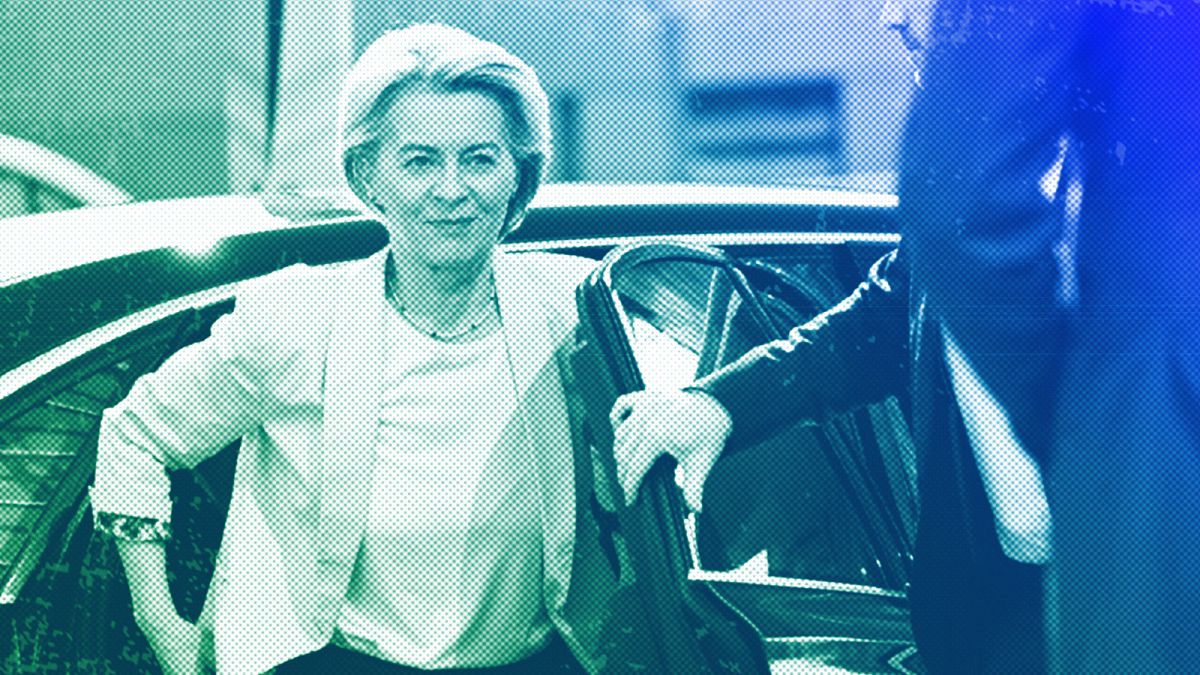By Dr Catherine E. De Vries, Bocconi University
The opinions expressed in this article are those of the author and do not represent in any way the editorial position of Euronews.
Navigating a more political Commission and more difficult nomination process will be tricky for all involved, but it clearly shows that the outcome of the European Parliament elections now matters and has an impact on what happens in Brussels, Dr Catherine E. De Vries writes.
After 185 million votes in 27 countries in the elections for the European Parliament, politicians across the bloc are taking stock.
With far-right parties winning many seats, how can European Commission President Ursula von der Leyen manage the rocky road ahead?
In 2019, pro-EU, liberal, green, and populist parties made substantial gains in the European elections. In 2024, the vote is more fragmented, with centrist and traditional parties suffering stunning and significant losses and many seats going to left-wing parties and right-wing populist parties.
At the least, this means that von der Leyen has more options when it comes to securing her second term as President of the European Commission, and, later, if she prevails, passing legislation.
She can negotiate with leftist groups, greens, and the far right. Building consensus between these groups, though, will be tough, and how she will be able to satisfy all unclear.
An upset in Brussels
After the results of the 2024 European Parliament elections poured in, von der Leyen declared that the pro-EU, pro-democracy centre held and that her lead candidacy for the European People’s Party had been a success.
While her own centre-right party grouping did indeed gain seats, and the centre-left grouping Socialists & Democrats are predicted to only lose a few seats, the third major party grouping of the centre, the liberal Renew, fared far worse.
The losses for Renew were significant and especially pronounced in the largest EU member states, including Germany, the Netherlands, and Spain.
Despite this major upset, the poor showing of French President Emmanuel Macron’s liberal party, Renaissance, received lots of news coverage after the election.
The far-right party of Marine Le Pen, the Rassemblement National, gained more than twice the number of votes than Renaissance. Macron then caught even party insiders off guard when he called a snap election in France in the wake of the vote.
His choice is a big gamble for the political heart of France, one of the European Union’s most important member states.
There will be a battle for political leadership in France and Brussels. With the results in, the wrangling for the top jobs in the European Union, the Commission president being one of the most important, will begin.
With her party’s victory, the resounding win of her own Christian Democratic Party in Germany, and her experience in the role, von der Leyen is a clear favourite for her job.
VDL, everyone’s favourite
My research with colleagues shows that during her first term in office, von der Leyen gained significant name recognition and secured substantial public approval. This is rare for an EU politician, and her fame and approval undoubtedly contributed to the strong showing of her party.
That said, this does not only mean that von der Leyen is a total shoo-in for a second term, but in light of the election results, what is assured is that if she does secure the nomination, there will be a rocky road to confirmation ahead.
It is important here to recall that her 2019 confirmation was far from straightforward. Securing a majority required backroom deals and concessions with not only the three centrist party groupings but especially the greens.
Back then, the majority held by the three centrist party grouping was much larger than it is now. In the fractured present, in order to secure a path to confirmation, von der Leyen will have to show great negotiation skills and make compromises, and here, problems may crop up.
She will have to negotiate with the greens and left groups, but also with the far right. How she will be able to propose legislative proposals that will satisfy all is deeply unclear.
Leftist and green groups will want concessions so that the European Green Deal will remain untouched and migration policy will not be pushed to the right. The radical right will want the exact opposite.
A much more political top job
While the road to confirmation looks to be complicated for von der Leyen, this in itself signals an important development in European politics.
After decades of being perceived as too technocratic and distant, the fight for the European Union’s top jobs has become highly anticipated and much more political. There is simply more to play for now.
Navigating a more political Commission and more difficult nomination process will be tricky for all involved, but clearly shows that the outcome of the European Parliament elections now matters and has an impact on what happens in Brussels.
This also signals to voters that it matters who will lead the European Commission, both in terms of personalities and policies.
The elections for the second largest democratic assembly body in the world, after the parliament in India, are finally becoming more important for the policy direction of the European Union and how Europe resonates with voters. Regardless of the outcome, this can be considered good news for democracy in the European Union.
Dr Catherine E. De Vries is Generali Chair in European Policies and Professor of Political Science at Bocconi University. At Bocconi, she also serves as Dean of International Affairs and co-chairs the International Advisory Council.
At Euronews, we believe all views matter. Contact us at view@euronews.com to send pitches or submissions and be part of the conversation.

